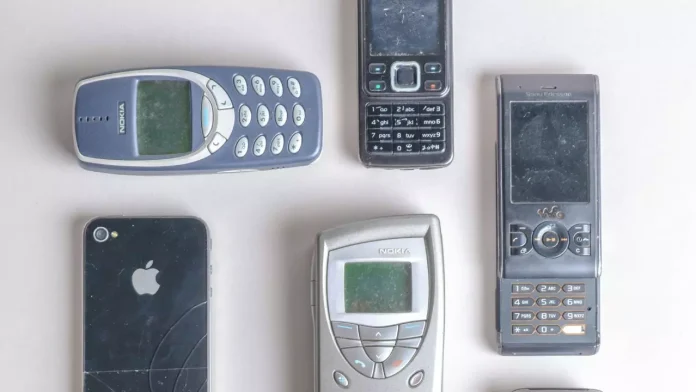There are those who reject infinity in the palm of their hand and decide to return to simpler technology, even if this means paying the same as a smart phone with many more functions.
The tendency to buy dumb phones or ‘dumbphones’ to spend less time hooked to the mobile phone continues to be positive, as indicated by the results of several startups that are taking advantage of this wave of digital disconnection.
Self-awareness about the number of hours a day we spend looking at our phones and scrolling endlessly on social media is leading many to look for solutions to reduce their screen time, even if they have to pay a price for it. Several companies related to the world of ‘ dumbphones ‘ are recording positive sales data that seem to indicate that this market niche is still very much alive.
For example, the startup Dumbwireless founded by a couple in the United States, last month sold more than $70,000 worth of cell phones and accessories to reduce usage time. This is 10 times more than what they sold in the same month of 2023. At the same time, the company Light , creator of the ‘Light Phone’, registered double the demand in 2023 than in 2022, and so far in 2024 makes the firm believe that the year will close repeating the same milestone, according to The New Yorker magazine.
Curiously, part of the demand for the Light Phone corresponds to churches, schools and after-school programs . This is in line with a growing concern about the protection of minors from inappropriate content online.
The success of the Brick firm , launched on the market in September 2023 by two engineers, also stands out. Brick is a physical accessory for iPhone consisting of a block that, together with an app on the device, allows you to block applications that cause distractions simply and quickly. The project began by using a 3D printer to create the accessory. Currently, they use 15 printers and ship products by the hundreds every day.
On its website, Brick highlights three specific profiles that may be interested in a product like this: students who need to concentrate on exams or homework, people concerned about well-being who want to spend less time on their cell phone, or people who do activities outdoors and they only want to use the mobile tools that help them explore, such as the camera or location, route and trail apps.
In addition, in app stores it is possible to find applications such as ” Unpluq “, which impose limits and controls on screen time. In the Play Store it has more than 50 thousand downloads. Also in the Google store is the “StayFree – Phone Use” app, with more than 10 million downloads.
As for iPhones, a recent policy change at Apple now allows third-party applications to control screen time settings, making it easier for these types of apps to act on the phone. Both iPhone and Android phones include native functions to limit the use of the device, but for many users this is not enough, and they easily fall into the temptation of deactivating them.
A fashion for the rich?
However, if you take a look at the online store of Dumbwireless, the startup mentioned above, you notice that the prices of the devices are curiously high. That is quite ironic since, precisely, they are phones characterized by including many fewer features than current mobile phones, imitating the aesthetics of those old and indestructible Nokia.
This company sells a Nokia 2780 for 90.95 euros, or a Punkt MP02 with keyboard and tiny screen for 352.95 euros. Light Phones, on the other hand, sell for $300. Taking advantage of this taste for minimalist or retro aesthetics and the overwhelming addiction that some suffer from, companies in this niche probably raise their prices to attract that type of customer who, for example, spends 140 euros on a Polaroid. Just as someone with an alcohol problem may decide to pay for rehab, there are those who will happily pay to forcibly restrict their phone use.














